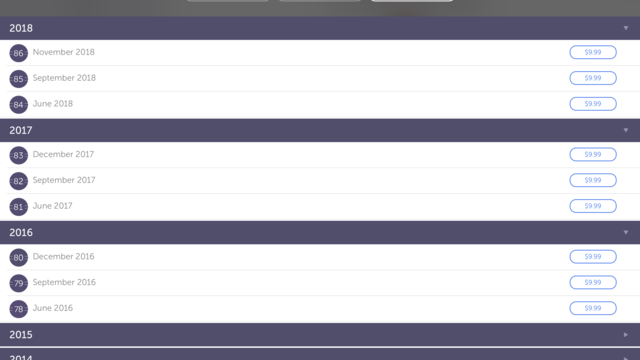When Should I Take the LSAT?
When it comes to taking and passing the Law School Admission Test (LSAT), timing is key. As the single most arduous and notoriously difficult test for aspiring lawyers, the LSAT requires a great deal of knowledge, preparation, and forethought. While it may seem like a daunting task, thousands of diligent students of law pass every year.
So what exactly does it take to pass the LSAT? What steps should you take to ensure success? And perhaps most importantly, when is the best time for you to take the LSAT? In the following sections, we will answer all these questions and more, so that you can pass the LSAT with flying colors!
That said, in order to understand when to prepare for the LSAT, you must also know how to prepare. For this, you must be aware of the kinds of questions and the format of the test itself. So, before we go through the best practices for LSAT preparation, let's take a look at how the test is formatted.
What Is on the LSAT?
There are 5 multiple-choice sections on the LSAT. However, only 4 of these sections are graded; the 5th is an experimental section that helps the Law School Admission Council (LSAC) test out questions for future tests. You will not know which section is ungraded, so needless to say, you must put your full effort into all 5 sections.
These sections are subdivided into three categories: Reading Comprehension, Analytical Reasoning, and Logical Reasoning. There will always be at least one Reading Comprehension section, one Analytical Reasoning section, and two Logical Reasoning sections. The fifth experimental section can be any one of these categories.
For example, you know that there is traditionally only one section for Reading Comprehension and one for Analytical Reasoning, so if you are taking the LSAT and find that there are two of either, you will know that one of them is the ungraded section. Similarly, if you find that there are three Logical Reasoning sections rather than two, you know that one of them must be un-scored. That said, you still have no way of knowing exactly which section is upgraded, so you must put your best efforts into every section.
Additionally, you will also be required to produce a writing sample based on a given prompt. While this writing sample will not be graded and is separate from the main test, it will be sent to law schools when you apply.
Reading Comprehension
Many people simply do not realize how much lawyers need to read. Texts related to law are often dense, complex, and extremely long. As a result, the reading comprehension section is extremely important in determining a potential lawyer's abilities. It allows law schools to see an applicant's ability to extract meaning from a given text, and also make insightful inferences.
There are four subsections within the Reading Comprehension section of the LSAT. Each subsection contains a lengthy text that will be similar to texts that one must read in law school or law practice. Following each text, you must answer between 5-8 multiple choice questions that test your ability to understand and logically interpret what you have read. In one of the four subsections, you will receive two shorter passages. This subsection is known as Comparative Reading and will require you to analyze both texts in relation to one another.
Regarding the content of these texts, it can be drawn from a wide range of topics and areas of study. For example, one reading might be related to the humanities, while another could be directly related to law. In any case, it is best to be well-versed on as many broader subjects as possible (history, biological sciences, etc).
That said, the Reading Comprehension section is not meant to test your preexisting knowledge of a given subject matter. You will need to hone your reading skills and be able to draw meaning from complex wording and text structures.
Analytical Reasoning
The Analytical Reasoning section is meant to test your ability to draw logical conclusions from a set of facts or propositions. Much like the Reading Comprehension section, Analytical Reasoning is broken down into subsections, with each subsection focused on a single passage, followed by questions related to the text.
Each passage is generally unrelated to law. These readings introduce scenarios that require critical thinking skills. For example, one reading may introduce you to a situation in which two employees at a company have conflicting interests, and may need to decide how best to proceed given certain company policies. Most of these questions will test your ability to find out either what must be true or what could be true, given certain parameters. This section is especially important for potential law students, as it tests your ability to look at a set of rules and use your deductive reasoning skills to reach a reasonable conclusion.
Logical Reasoning
Both of the Logical Reasoning sections test an applicant's ability to identify, evaluate, construct, and refute arguments. First, you will be given brief examples of arguments, and then you must critically evaluate the validity of each. These samples are drawn from many different sources, often unrelated to law, including magazines, newspapers, and scholarly texts.
You will be expected to answer one or two questions for each sample argument. These questions might ask you to identify different parts of the argument, recognize patterns of reasoning, detect assumptions, or identify flaws in the argument. This will require you to really understand how arguments are constructed and how logic can (and cannot) be used to reach a given conclusion.
However, you are not required to have specialized knowledge of argumentation or related vocabulary. You will simply need to recognize different elements of arguments (premise, conclusion, etc.) and identify how they relate to one another.
Now that you know what to expect, let's look at how and when you should start preparing for the LSAT.
When Should I Start Preparing for the LSAT?
The LSAT is designed to evaluate how well you will do in law school and, eventually, on the bar exam. It tests the skills that are necessary to study and practice law. Some people develop these skills naturally (to one degree or another), while others need to study concepts like logical and analytical reasoning extensively. However, everyone will need to put a great deal of time and effort into LSAT preparation, no matter how confident you are in your reasoning skills.
It is recommended that you spend anywhere between 4-8 hours studying for the LSAT per week, for no less than 3-4 months prior to the exam. Obviously, starting earlier will help you be as ready as possible. So, 3-4 months in advance is the minimum amount of time you should give yourself.
However, when it comes to the weekly or monthly allotted study time, you will need to evaluate your specific needs and schedule to find a rhythm that works for you. It is also important to develop efficient study skills. Some people can pour over books and notes for hours without absorbing much information, so you should try to build good study habits and keep track of your progress as go along.
Most importantly, don't over-exert yourself. Many people think that they simply need to study as much as possible to pass the LSAT. However, this can be counter-productive. LSAT preparation can leave people feeling exhausted, or getting to a point of mental burnout. This is not a situation you want to be in, as it can negatively affect your LSAT score.
So, while you should not take the LSAT lightly, you should also not put yourself on a path to burnout. This is why 4-8 hours per week for a period of at least 3-4 months is recommended. This way, you have ample time to study and hone your reasoning skills, without the need to cram in information at the last minute.
When Is the LSAT Administered?
Unlike other graduate school entrance exams, such as the GMAT and MCAT, the Law School Admission Test (LSAT) is not offered year-round. This makes it particularly difficult to try to organize your daily life and study schedule in advance. So, in order to give yourself enough time to comfortably study for the LSAT, you should schedule your exam well in advance.
The LSAT is only administered four times a year: once in June, once in late September/early October, once in December, and once in February. It is important to decide which specific LSAT time slot you would like to have, so you can plan your LSAT prep study schedule, dive into an LSAT prep program, and plan your law school applications accordingly.
In the United States, Canada, the Caribbean, and a few other countries/regions, the LSAT is administered on a Saturday morning—except in June, when it is administered on a Monday afternoon. For Sabbath observers, the test is typically administered on the Monday following Saturday administrations.
When Should I Take the LSAT?
Most law schools require that you take the LSAT by December (at the latest) for admission the following fall. However, taking the test earlier—in June or September/October—is often advised. This way, you can make the necessary arrangements in the event that you do not score as well as you would have hoped. Additionally, it is recommended that you take the LSATs well in advance of school admissions so that you can evaluate your scores and work on potential problem areas before entering law school for the first time.
Think about it: if you give yourself more time between the last possible LSAT you can take and your first LSAT, then you have a chance to retake the LSAT.
We actually recommend targeting the June LSAT before the fall in which you plan to apply for law school. For example, if you wanted to begin law school in the fall of 2018, you should be applying to law schools in the fall of 2017, and aiming to take the LSAT in June of 2017.
This is generally the best approach because every law school has rolling admissions. This means that the first application that they receive is the first application read. The longer you wait, the later your application will appear in the queue. Ideally, you want to appear as early in the admissions queue as possible, so you are being compared to fewer applicants while competing for a greater number of available seats.
By targeting the June LSAT, you will put yourself in a position to have your law school applications submitted on day one because, with your LSAT complete, you can spend the summer working on your applications, including your law school personal statement and your law school letters of recommendation.
That being said, if it comes down to applying early with a low LSAT score and applying later with a higher LSAT score, always choose the latter.
The Importance of LSAT Preparation
Remember, the LSAT is by far the number one factor in law school admissions—up to 75-80% of your application—so you want to ensure that your LSAT score is within the range required to have a realistic chance of gaining admission to your target law schools. While other factors like your undergraduate GPA and work or volunteer experience will certainly be relevant, the LSAT is by far the most important element for a successful law school application.
Are you interested in learning more about LSAT prep? Do you want to increase your chances of getting into your dream law school? If so, be sure to sign up for our Comprehensive LSAT Prep Course today!










